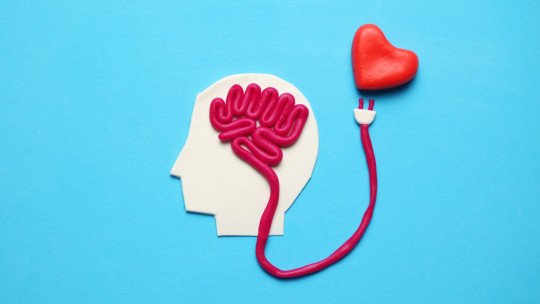
Emotional Intelligence is a set of skills that, although we may not notice it, help us cope with all types of complex situations to which we are exposed on a daily basis. However, as with all psychological traits, the degree to which this type of intelligence is present in people varies greatly depending on each individual.
That is to say, not everyone has a good level of Emotional Intelligence. Luckily, it is possible to take steps to “train” this aspect of yourself; In this article you will find several effective strategies to achieve this through Habits to enhance Emotional Intelligence explained in summary.
What is emotional intelligence?
Emotional Intelligence is a psychological construct that groups skills of recognition, management and expression of emotions and feelings This concept arises from the idea that the classical or conventional definition of the term “intelligence” is too limited, as it is normally applied to processes associated with the use of language or mental representations associated with logic, geometry or mathematics.
Thus, researchers such as Peter Salovey, John D. Mayer and David Goleman have pointed out that There are mental skills and abilities associated with the management of emotions that can be distinguished from the rest of the skills linked to intelligence and that at the same time have characteristics in common and can be studied scientifically.
Although in several aspects they overlap with some of the ramifications of general intelligence (especially with verbal skills), they are their own entity and help predict how easy it is for people to live while maintaining a good level of intelligence. well-being and enjoying adequate social relationships.
Some of the capabilities included in Emotional Intelligence are the following:
Strategies to enhance Emotional Intelligence
There are many ways to promote and enhance Emotional Intelligence, as it is made up of such varied mental and behavioral processes. However, there are some that are especially useful, and although the best way to progress in this aspect is to have the help of a psychologist, here you can find the most important ones that you can apply yourself.
1. Develop habituation to negative emotions
To reinforce Emotional Intelligence in you, You must accept the idea that it is not possible to completely block negative emotions, that is, those that make you feel bad To achieve this, make sure you don’t become obsessed with leaving elements such as anxiety, fear, disgust, etc. out of your consciousness. Instead, when you experience them, get used to directing your attention towards other sensations and stimuli.

2. Get familiar with your emotions through a journal
To gain familiarity with the different emotions, it is useful to frequently put words to them and reflect on the nuances that exist in each of them. Therefore, one of the most useful strategies to enhance your Emotional Intelligence is to complete an emotions diary for several months.
In its pages you will write about what you have felt at certain moments of the day that are important to you, and about the thoughts associated with those emotions and feelings Also briefly include information about the context (place and time of day) in which each thing happened to you, and what you did right before and right after feeling that way.
By the way, the less time that passes between when you experienced it and when you write about it in your emotion journal, the better.
This is one of the tips to enhance emotional intelligence that is related to what is known as emotional labeling. This process consists of linking intense emotions to specific words and terms that could lead to dysfunctional behavioral patterns (for example, falling into alcoholism to deal with sadness over the death of a loved one); It has been shown that this helps to manage these psychological contents appropriately, accepting their emotional charge and integrating it into our identity.
Therefore, part of the work done in psychotherapy consists of helping the person to understand through words what is happening to you so as not to generate taboos capable of giving rise to obsessive thoughts because the patient tries to keep them away from his consciousness at all costs.
3. Boost your capacity for self-motivation by always having clear goals
In general, A short-term, well-defined goal is almost always more motivating than an abstract goal that will only bring you satisfaction in the medium or long term
Therefore, it is important that you learn to see the sub-goals that exist in the more general objectives that you set throughout your life. These will make it easier for you to consistently feel good about your progress as you move from one to the next sequentially, and they will also make it less likely that the idea of tackling a very complex and lengthy task will intimidate you to the point of paralysis. and give up starting it.
In fact, directing our mind towards concrete goals is a very good way to not let the ambiguity and uncertainty caused by not fully understanding certain emotions paralyze us. These emotions and feelings can be motivational elements that we channel to get closer to our goals Furthermore, as we get going, we will see the implications of those emotions and experience will help us understand them more and more through practice.
But to achieve this, it is necessary to make an effort to set specific goals in our minds with a deadline/date.
4. Learn to create contexts that bring out the desired emotions
One of the keys to Emotional Intelligence consists of learn that emotions do not arise from nothing, but are linked to the material reality that surrounds us Therefore, an effective way to enhance Emotional Intelligence is to learn which situations and environments facilitate the appearance of certain emotions, and use this information to our advantage.
For example, experiment with different contexts when working, seeing which elements of the space in which you carry out your tasks make it easy for you to concentrate on what you need to do, which ones generate anxiety, which distract you, etc.
5. Start paying attention to how you manage negative emotions
Other important aspects of Emotional Intelligence have to do with not self-sabotaging ourselves by carrying out actions to manage emotional discomfort that not only do not solve that feeling of discomfort, but also contribute to it in the long term. For example, there are those who confuse anxiety with hunger, so that when they feel excessive stress or anxiety they go straight to the refrigerator to eat something even though they are not really hungry. It is also common that poor control of emotions facilitates the emergence of addictions.
So that, Make it a point to identify moments of the day in which emotions that make you feel bad give rise to the impulse to carry out a certain action and ask yourself if those actions really are an appropriate way to express what you feel.
Do you want to have psychotherapeutic assistance?
Emotion management is one of the aspects that is most worked on in psychotherapy. Therefore, if you are interested in having the support of a team of psychologists with many years of experience in patient care, we invite you to contact us.
In Psychology For We have been working for more than two decades to help people overcome all types of difficulties and develop skills to live better. Our team of mental health experts intervenes in the areas of individual psychological therapy, coaching, family and couples therapy, psychiatry and neuropsychology, and our sessions can be in person at our center located in Madrid or through the online therapy format.








